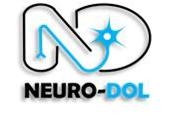NEURO-DOL : Physiopathologie et pharmacologie de la douleur et de la migraine
Published on July 21, 2021 – Updated on July 21, 2021
NEURO-DOL studies cancer- and treatment-related pain based on a translational research, aiming at improving characterization of pathophysiology, epidemiology and discovering of new therapeutic targets and strategies.
Lab

NEURO-DOL : Physiopathologie et pharmacologie de la douleur et de la migraine
INSERM U1107
UFR Médecine Pharmacie
TSA 50400
28, Place Henri Dunant
63001 CLERMONT-FERRAND